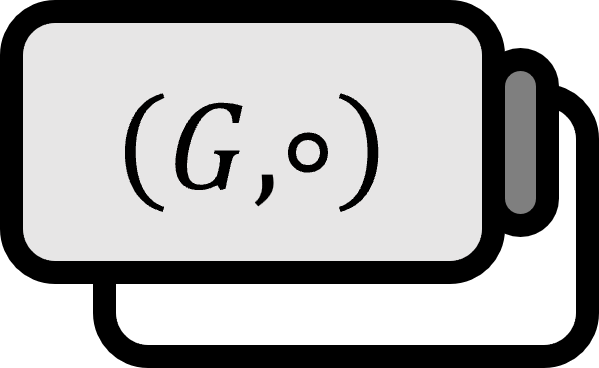In P-groups in abstract algebra
Definition 1
Given that the identity of a finite group $G$ is $e$, if $g \in G$ satisfies $g^{n} = e$ for the smallest $n \in \mathbb{N}$, then it is denoted as $|g| = n$. For all $g \in G$ and a given prime number $p$, if there exists an integer $m \ge 0$ that satisfies $|g| = p^{m}$, the group $G$ is called a $p$-group.
Explanation
If $|G| = p^{m}$, then it’s an $p$-group, and the following theorem is known.
Theorem
$X_{G} : = \left\{ x \in X \ | \ gx = x , g \in G \right\}$ is a set independent of action, and let’s denote it as $\displaystyle X_{G} = \bigcap_{ g \in G} X_{g}$. If a finite group $G$ is $|G| = p^{m}$ and $X$ is a $G$-set, then $$ |X| \equiv |X_{G}| \pmod{p} $$
Proof
Let’s say $X$ has $r$ orbits. Let’s denote an element taken from each orbit as $x_{1} , \cdots , x_{r}$, then $$ |X| = \sum_{i=1}^{r} | G x_{i} | $$ If you say $s = |X_{G}|$, then $0 \le s \le r$, and $$ |X| = |X_{G}| + \sum_{i=s+1}^{r} | G x_{i} | $$
Property of Isotropy Subgroups: If $X$ is a $G$-set, then $|Gx| = ( G : G_{x})$. If $G$ is a finite group, then $|Gx|$ is a divisor of $|G|$.
Since $|G| = p^{m}$, the divisor $|Gx_{i}|$ must be a power of $p$. Therefore, for some $k \in \mathbb{Z}$, $$ |X| = |X_{G}| + p k $$ and, according to the definition of congruence, the following holds. $$ |X| \equiv |X_{G}| \pmod{p} $$
■
Fraleigh. (2003). A first course in abstract algebra(7th Edition): p322. ↩︎
